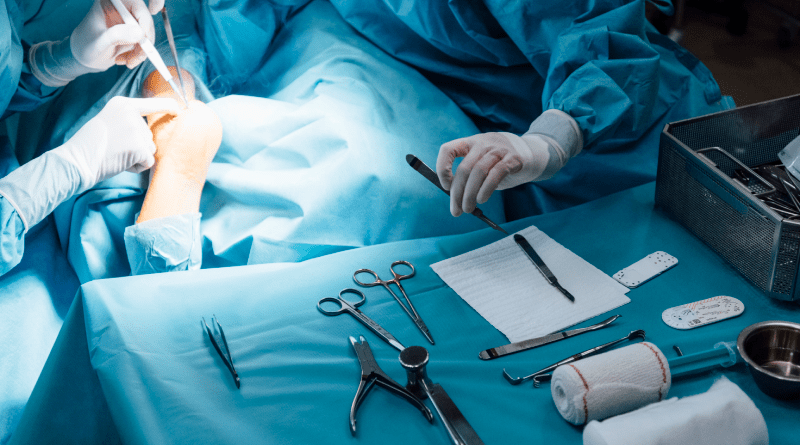Laparoscopic Gastric Sleeve Procedure – Laparoscopic Gastric Sleeve Costs in Turkey
What is Laparoscopic Gastric Sleeve?
Laparoscopic gastric sleeve, also known as sleeve gastrectomy, is a weight loss surgery that reduces the size of the stomach. This procedure has become increasingly popular over the past decade due to its effectiveness in treating obesity and related health conditions.
During laparoscopic gastric sleeve surgery, the surgeon removes a large portion of the stomach, leaving behind a sleeve-shaped pouch that is about the size of a banana. This smaller stomach size leads to the patient feeling full more quickly and consuming fewer calories.
The surgery is typically performed using minimally invasive techniques, which means that only small incisions are made in the abdomen. The surgeon then inserts a laparoscope, which is a tiny camera, through one of the incisions to help guide the surgical instruments.
Laparoscopic gastric sleeve surgery usually takes between one and two hours to complete, and most patients can go home the same day or within a day or two of the surgery. Recovery time is generally shorter than other gastric surgeries, and patients can return to work within one to two weeks.
Laparoscopic Gastric Sleeve Procedure Steps
Laparoscopic gastric sleeve, also known as sleeve gastrectomy, is a minimally invasive weight loss surgery that involves removing a large portion of the stomach, reducing it to a sleeve-like shape. Here are the basic steps involved in the procedure:
- Step 1: Anesthesia and Incision
The patient is given general anesthesia to ensure comfort during the procedure. Once the patient is asleep, several small incisions are made in the abdomen. - Step 2: Insertion of Laparoscope and Instruments
A laparoscope, which is a small camera connected to a monitor, is inserted into one of the incisions. This allows the surgeon to view the inside of the abdomen on the monitor. Other surgical instruments are inserted through the remaining incisions. - Step 3: Cutting and Removal of Stomach
Using the surgical instruments, the surgeon cuts and removes a large portion of the stomach, leaving behind a thin, banana-shaped segment. The removed portion of the stomach is then removed from the abdomen through one of the incisions. - Step 4: Stapling and Closing
The remaining segment of the stomach is sealed using surgical staples, creating a tube or sleeve-like structure. The staples help to ensure that the stomach remains closed and that there is no leakage. The incisions are then closed using medical adhesive or surgical sutures. - Step 5: Recovery and Aftercare
Following the surgery, patients are typically monitored for a few hours before being allowed to go home. They will be given instructions on how to care for themselves post-surgery, including information on what to eat and when to resume normal activities. Most patients can return to work within 2-4 weeks and will be scheduled for follow-up appointments with their surgeon to monitor their progress.
Laparoscopic gastric sleeve surgery is a relatively safe and effective weight loss option for individuals who are obese or have obesity-related health issues. The procedure typically takes 1-2 hours, and most patients can expect to lose a significant amount of weight within the first year following surgery. As with any surgical procedure, there are risks involved, and patients should discuss these with their surgeon before undergoing the surgery.

Who Can Have Laparoscopic Gastric Sleeve?
Laparoscopic sleeve gastrectomy surgery is an effective treatment option for obesity and related health problems. People with a BMI over 40, who have tried other weight loss methods, who adhere to lifestyle changes, and who are in good general health may be eligible for surgery. You can contact us to determine whether laparoscopic sleeve gastrectomy surgery is suitable for you.
Should I Prepare Before Laparoscopic Gastric Sleeve Surgery?
If you’ve decided to undergo laparoscopic gastric sleeve surgery to help with weight loss, it’s important to know that there are several steps you can take to prepare yourself physically and mentally. Here are some things you should consider doing before your surgery:
- Meet with your healthcare provider: Your healthcare provider can help you determine whether you’re a good candidate for gastric sleeve surgery. They will evaluate your overall health and help you create a plan to prepare for your surgery.
- Follow a pre-surgery diet: Your healthcare provider may recommend a pre-surgery diet to help shrink your liver and reduce the risk of complications during surgery. This usually involves consuming a low-calorie, low-carbohydrate diet for a few weeks before the procedure.
- Stop smoking: Smoking can increase the risk of complications during and after surgery. It’s a good idea to quit smoking for at least two weeks before your surgery to reduce your risk of complications.
- Exercise regularly: Regular exercise can help improve your physical fitness, which can make recovery after surgery easier. Your healthcare provider may recommend starting an exercise program before your surgery to help you get in better shape.
- Prepare your home: After your surgery, you may need to spend some time recovering at home. Before your surgery, it’s a good idea to prepare your home for your recovery. This may include stocking up on healthy foods, arranging for someone to help you with household chores, and setting up a comfortable sleeping area.
- Mental preparation: Laparoscopic gastric sleeve surgery is a big decision, and it’s normal to feel some anxiety or nervousness about the procedure. Talk to your healthcare provider if you’re feeling anxious or worried about the surgery. They can provide you with resources and support to help you prepare mentally.
In conclusion, preparing for laparoscopic gastric sleeve surgery can help reduce your risk of complications and improve your chances of a successful recovery. By following your healthcare provider’s recommendations, you can help ensure that you’re physically and mentally ready for the procedure. Remember to take your recovery seriously, and to follow your healthcare provider’s instructions for post-operative care.
What are the Advantages of Laparoscopic Obesity Surgery?
Laparoscopic obesity surgery, also known as minimally invasive bariatric surgery, is a type of weight loss surgery that is increasingly becoming popular due to its effectiveness in treating obesity and related health conditions. Here are some of the advantages of laparoscopic obesity surgery:
- Minimally invasive: Laparoscopic surgery is less invasive than traditional open surgery, which means that smaller incisions are made in the abdomen. This results in less scarring, less pain, and quicker recovery times.
- Reduced hospital stay: Due to the minimally invasive nature of laparoscopic obesity surgery, patients can typically go home the same day or within a few days of the surgery. This can reduce the need for hospital stays and the associated costs.
- Higher success rates: Laparoscopic obesity surgery has been found to have higher success rates compared to non-surgical weight loss methods. Patients who undergo laparoscopic surgery experience significant weight loss and improvements in their health and quality of life.
- Lower risk of complications: Laparoscopic surgery has been found to have a lower risk of complications compared to traditional open surgery. This includes a lower risk of infection, bleeding, and damage to nearby organs.
- Improved quality of life: Laparoscopic obesity surgery has been found to improve overall quality of life for patients. This includes improvements in physical health, self-esteem, and social functioning.
- Treatment of obesity-related health conditions: Laparoscopic obesity surgery has been found to be effective in treating obesity-related health conditions such as type 2 diabetes, high blood pressure, and sleep apnea.
- Long-term weight loss: Laparoscopic obesity surgery has been found to result in long-term weight loss for patients. With appropriate diet and lifestyle changes post-surgery, patients can maintain their weight loss over time.
In conclusion, laparoscopic obesity surgery offers numerous advantages over traditional open surgery and non-surgical weight loss methods. This surgery offers minimal scarring, reduced recovery time, higher success rates, and lower risk of complications. Additionally, laparoscopic obesity surgery has been found to improve overall quality of life, treat obesity-related health conditions and result in long-term weight loss.

Differences of Laparoscopic Stomach Surgery from Open Surgery
Laparoscopic stomach surgery is a minimally invasive surgical procedure that involves making small incisions in the abdomen, while open surgery is a traditional surgical procedure that requires a larger incision. Here is a look at the key differences between laparoscopic stomach surgery and open surgery:
Incision size: Laparoscopic stomach surgery involves making small incisions in the abdomen, typically less than an inch in size. Open surgery requires a larger incision, often several inches long.
Tools used: Laparoscopic stomach surgery involves the use of a laparoscope, which is a long, thin tube equipped with a camera and surgical instruments that the surgeon uses to perform the surgery through the small incisions. In open surgery, the surgeon uses hand-held instruments and works directly with the surgical site.
Viewing the surgical site: Laparoscopic stomach surgery allows the surgeon to view the surgical site on a video monitor, giving a clear, high-definition view of the stomach and surrounding organs. In open surgery, the surgeon has a direct view of the surgical site.
Recovery time: Laparoscopic stomach surgery requires less recovery time than open surgery. Since the incisions are smaller and fewer tissues are disturbed, patients often experience less pain and scarring and can return to normal activities more quickly.
Risk of complications: Laparoscopic stomach surgery has a lower risk of complications than open surgery. Since it is a minimally invasive procedure, the risk of bleeding, infection, and other complications is reduced.
In conclusion, laparoscopic stomach surgery and open surgery differ in terms of incision size, tools used, viewing the surgical site, recovery time, risk of complications, and cost. Laparoscopic surgery is a minimally invasive and effective surgical option for treating stomach-related conditions.
Reviews of Laparoscopic Gastric Sleeve Surgery Patients
Many people opt for a procedure known as laparoscopic sleeve gastrectomy, which helps them lose weight by reducing the size of the stomach. The surgery involves making small incisions through the abdominal wall, so there is much less trauma to the body than with traditional open surgery. To get patients’ views on this surgery, we interviewed patients who had previously undergone this surgery.
Speaking to one of our interviewees, we learnt that she was very happy with the surgery and the results she had achieved. The main benefits she experienced included increased energy levels and improved quality of life. She said that she was able to easily follow the recommended diet and lifestyle changes after the surgery and has successfully maintained her weight for over two years.
Another interviewee said that the hardest part for her was finding the lifestyle changes she needed and incorporating them into her daily routine. However, she said that since then she has been much happier and active and her life has changed in a very positive direction.
Most interviewees said that they felt better and more relaxed after the surgery and had more freedom in their lives as they could easily do activities that were previously difficult for them. They also emphasised that the benefits of the surgery included a shorter hospital stay, with doctors monitoring the patient to ensure a smooth recovery.
Patients who undergo laparoscopic sleeve gastrectomy usually comment positively about the surgery. The benefits they experience include greater weight loss, better health, easier compliance with lifestyle changes and a shorter recovery period. While the risks associated with surgery are always present, patient testimonials suggest that for many people the surgery has led to significant improvements in their lives.
Is Laparoscopic Gastric Sleeve Surgery Reliable in Turkey?
Laparoscopic gastric sleeve surgery has become a popular weight loss surgery in Turkey in recent years. With the increasing demand for safe and effective weight loss procedures, many patients are turning to this surgery as a solution to their obesity-related health issues. But is it reliable in Turkey?
The short answer is yes. Turkey has become a hub for medical tourism, particularly in the realm of bariatric surgery. Laparoscopic gastric sleeve surgery is one of the most commonly performed bariatric procedures in Turkey and has a high success rate.
One of the major reasons why laparoscopic gastric sleeve surgery is reliable in Turkey is the quality of medical facilities and expertise of the surgeons. Turkey has a large number of accredited hospitals and clinics with state-of-the-art technology and equipment. These facilities are staffed by highly skilled surgeons who have extensive experience in performing bariatric surgeries, including gastric sleeve.
In addition, the cost of laparoscopic gastric sleeve surgery in Turkey is relatively affordable compared to other countries. Patients can save up to 70% on the cost of the same surgery in Europe or the US. Despite being cost-effective, the quality of care and expertise provided by Turkish surgeons are not compromised.
Moreover, Turkey has a well-established medical tourism industry that caters to patients from around the world. Many hospitals and clinics have dedicated staff members who cater to medical tourists and provide assistance with travel arrangements, accommodation, and aftercare.
In conclusion, laparoscopic gastric sleeve surgery is a reliable weight loss solution in Turkey. The high success rate, affordability, quality of medical facilities, and expertise of the surgeons make it an attractive option for patients seeking safe and effective bariatric surgery. However, it is essential to do thorough research and choose an accredited medical facility with skilled and experienced surgeons to ensure the best possible outcome.

Laparoscopic Gastric Sleeve Costs in Turkey
Laparoscopic gastric sleeve surgery, also known as sleeve gastrectomy, is a popular weight loss surgery in Turkey. The cost of this surgery can vary depending on several factors such as the geographic location, reputation of the clinic or hospital, and the surgeon’s experience. However, on average, the laparoscopic gastric sleeve cost in Turkey is relatively affordable compared to other countries.
In Turkey, the cost of laparoscopic gastric sleeve surgery ranges from $4,000 to $8,000, depending on the facility and the surgeon’s experience. This is significantly lower compared to countries like the US, where the same surgery can cost up to $20,000 or more.
One of the reasons why the cost of laparoscopic gastric sleeve surgery is lower in Turkey is due to the lower cost of living compared to other developed countries. This means that salaries, rent, and other expenses are generally lower, resulting in lower healthcare costs. Additionally, the Turkish government offers incentives to medical facilities that treat foreign patients, which helps to reduce costs further.
Another reason for the lower cost of laparoscopic gastric sleeve surgery in Turkey is the high demand for medical tourism. Turkey is one of the leading countries for medical tourism, and the medical tourism industry has grown significantly in recent years. This has led to fierce competition between medical facilities, which has resulted in lower prices for many surgical procedures, including laparoscopic gastric sleeve surgery.
Although the cost of laparoscopic sleeve gastrectomy surgery in Turkey is lower, it is important to remember that patients should not compromise on the quality of care. It is essential to choose a reputable and accredited facility with experienced surgeons and staff to ensure the best possible outcome. If you want to lose weight successfully with reliable results, contact us for laparoscopic gastric sleeve surgery prices and more details.
